When building a custom home or starting a major renovation, one of the most important aspects to consider is the budget. An accurate and well-detailed budget helps you avoid unexpected costs and ensures that the project stays on track financially. However, understanding whether your builder’s budget is accurate can be challenging, especially if you’re unfamiliar with construction costs and processes. Find out here how to know if your builder’s budget is accurate. Get the facts from construction consultants and experts here on budgets.
Fortunately, there are steps you can take to assess the accuracy of your builder’s budget and avoid unpleasant surprises down the road. Here’s how to know if your builder’s budget is accurate and trustworthy.
1. Ask for a Detailed Breakdown
A good starting point is to request a detailed breakdown of your builder’s budget. The more granular and specific the budget, the easier it is to assess its accuracy. Look for clear line items that cover each stage of the construction process, such as site preparation, framing, electrical work, plumbing, and finishes. The budget should also specify materials, labor, and any permits or inspections required.
Avoid vague or lump-sum estimates that group multiple stages of construction into one line item. These can hide potential cost overruns or miscalculations. An accurate budget will clearly allocate costs to specific categories, allowing you to see where your money is going.
What to Look For:
A budget that breaks down each expense with precise categories like materials, labor, permits, and any additional fees.
Tip:
If you notice any broad or unclear categories, ask your builder to explain and clarify the specifics. A transparent budget is always a good sign of accuracy.
2. Compare Multiple Bids
If possible, obtain bids from multiple builders for the same project. This gives you a frame of reference to evaluate whether the budget you’re reviewing is within a reasonable range. If your builder’s budget is significantly higher or lower than others, it may indicate a red flag.
A lower budget might seem appealing at first, but it could mean that certain costs are being underestimated or omitted altogether. Conversely, a much higher budget could suggest the builder is inflating costs unnecessarily. A mid-range bid is often the most reliable, as it reflects a realistic understanding of the work required.
What to Look For:
Bids from multiple builders with similar cost estimates for materials, labor, and project timelines.
Tip:
Request at least three bids to get a clearer picture of whether your builder’s budget is fair and accurate.
3. Understand the Allowances
Allowances are placeholders for items that haven’t been selected yet, such as fixtures, countertops, or flooring. These are common in custom home projects, but they can also lead to budget discrepancies if not handled properly. Low allowances can result in higher-than-expected costs when you later choose your preferred materials or finishes.
To assess the accuracy of your builder’s budget, pay close attention to the allowances. Are they realistic for the type of materials or finishes you want? For instance, if the allowance for kitchen countertops is set at a very low amount, but you’re planning on selecting high-end quartz, this could lead to significant cost increases.
What to Look For:
Realistic allowances that match your design preferences, style, and quality expectations.
Tip:
Discuss your material choices with your builder upfront and ensure the budget reflects accurate allowances for the quality you expect.
4. Review Labor Costs and Subcontractor Estimates
Labor costs can vary depending on the region, the project’s complexity, and the skill level required. Accurate labor cost estimates are essential to staying within budget, so ask your builder how they calculated these costs. Labor costs should be based on actual subcontractor bids or historical data from previous projects.
If the budget lists estimated labor costs without consulting subcontractors or local rates, there’s a higher risk of unexpected increases. Ensure that the builder has obtained accurate subcontractor bids for critical tasks such as plumbing, electrical work, and carpentry.
What to Look For:
Labor costs based on subcontractor bids or historical data, not just general estimates.
Tip:
Ask to see subcontractor bids for high-cost tasks to verify the accuracy of the labor cost estimates.
5. Consider Contingencies for Unexpected Costs
An accurate budget will always include a contingency fund to cover unexpected costs that arise during the project. Construction projects frequently encounter unforeseen expenses, such as hidden structural issues, material delays, or weather-related problems. A typical contingency fund is between 10-15% of the total project budget.
Without a contingency fund, even minor setbacks can push the project over budget. Review your builder’s budget to ensure a reasonable contingency is included. This provides a safety net in case any surprises come up during construction.
What to Look For:
A contingency fund of at least 10-15% to account for unexpected expenses and changes during construction.
Tip:
Confirm that the contingency fund is reserved for true unforeseen costs, not for optional upgrades or changes to the project scope.
6. Cross-check Material Costs
Material costs can fluctuate, especially with ongoing supply chain disruptions or seasonal demand changes. Make sure your builder’s budget reflects current market prices for materials like lumber, concrete, steel, and other construction supplies. If the budget was created months before the start date, some of the material costs may no longer be accurate.
To cross-check material costs, you can either research current market prices online or ask local suppliers for estimates. If you notice any significant discrepancies, bring them to your builder’s attention for review.
What to Look For:
Up-to-date material cost estimates that reflect current market conditions.
Tip:
Ask your builder if they have built-in flexibility for rising material costs, such as negotiating bulk deals or securing materials early.
7. Look for Fixed-Price vs. Cost-Plus Contracts
Construction contracts typically fall into one of two categories: fixed-price contracts or cost-plus contracts. Understanding which type of contract your builder is using will give you insight into how accurate the budget is likely to be.
- Fixed-price contracts offer more predictability because the builder commits to completing the project for a set price, which includes all materials, labor, and contingencies. This type of contract protects you from unexpected price increases but may include higher initial estimates to cover the builder’s risk.
- Cost-plus contracts allow for more flexibility but can lead to budget overruns. In a cost-plus contract, the builder charges for the actual cost of materials and labor plus a percentage fee. While this can be beneficial if prices decrease, it can also result in higher costs if prices rise.
What to Look For:
Clear terms on whether the budget is part of a fixed-price or cost-plus contract. Fixed-price contracts provide more stability.
Tip:
If you’re working with a cost-plus contract, ensure you have visibility into material and labor costs to track potential increases.
8. Assess the Builder’s Track Record
Finally, one of the best ways to determine if your builder’s budget is accurate is by reviewing their past performance. Ask for references from previous clients and inquire about whether their projects stayed on budget. Did the builder provide accurate cost estimates at the start, or were there unexpected cost overruns? Checking online reviews or speaking with previous customers can give you insight into how reliable the builder is with their budgeting process.
Builders with a solid track record of accurate budgets and on-time project completion are more likely to provide realistic estimates for your project.
What to Look For:
A builder with a history of completing projects within the estimated budget and timeline.
Tip:
Ask for references and follow up with past clients to verify the builder’s reliability with budgeting and cost management.
Conclusion
Ensuring your builder’s budget is accurate is a critical step in keeping your project on track and avoiding financial surprises. By requesting a detailed breakdown, comparing bids, checking allowances, and reviewing labor and material costs, you can better assess the accuracy of the budget. Additionally, having a contingency fund in place and understanding the type of contract you’re signing will help protect you from unforeseen expenses. Find out here how to know if your builder’s budget is accurate. Get the facts from construction consultants and experts here on budgets.
Working closely with a trustworthy builder who communicates transparently and has a proven track record of accurate budgeting will give you peace of mind throughout the construction process.


